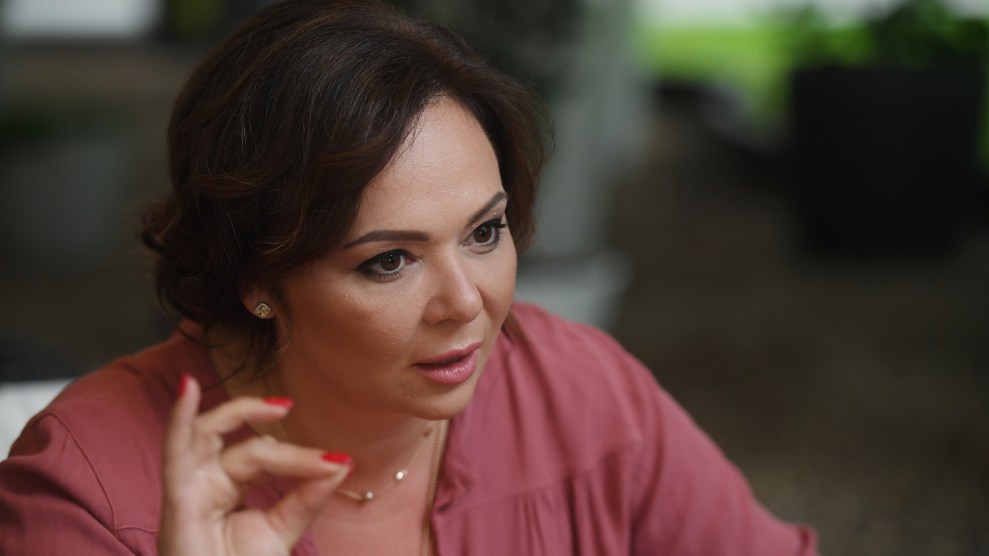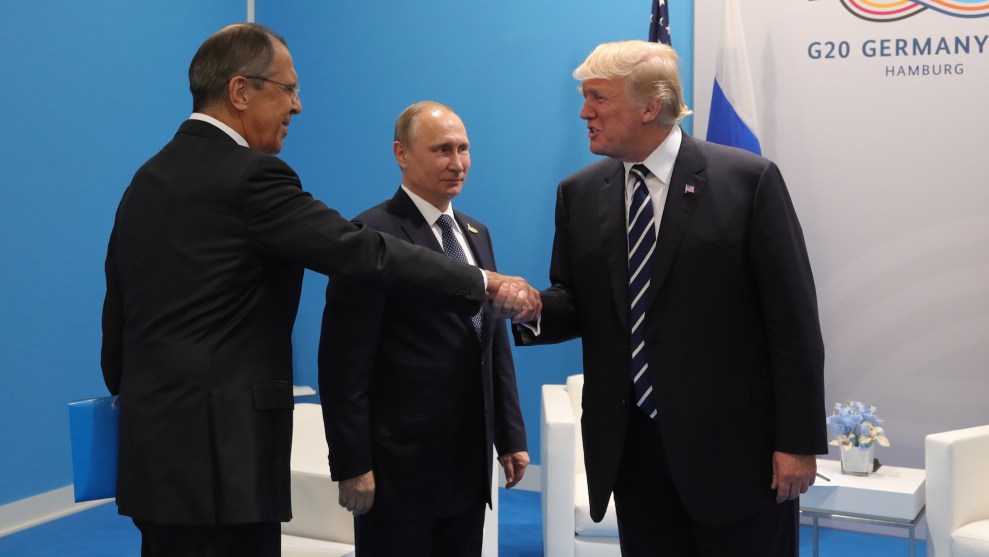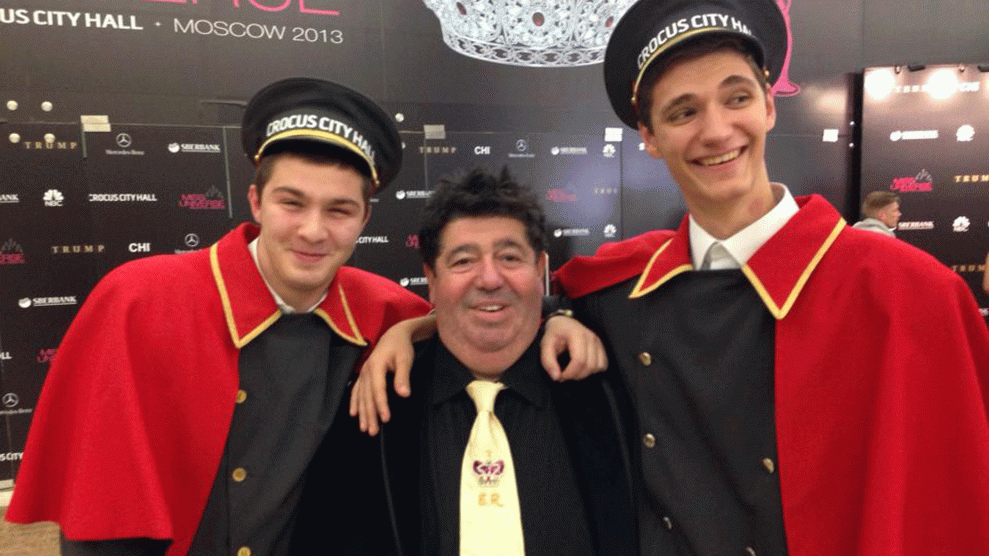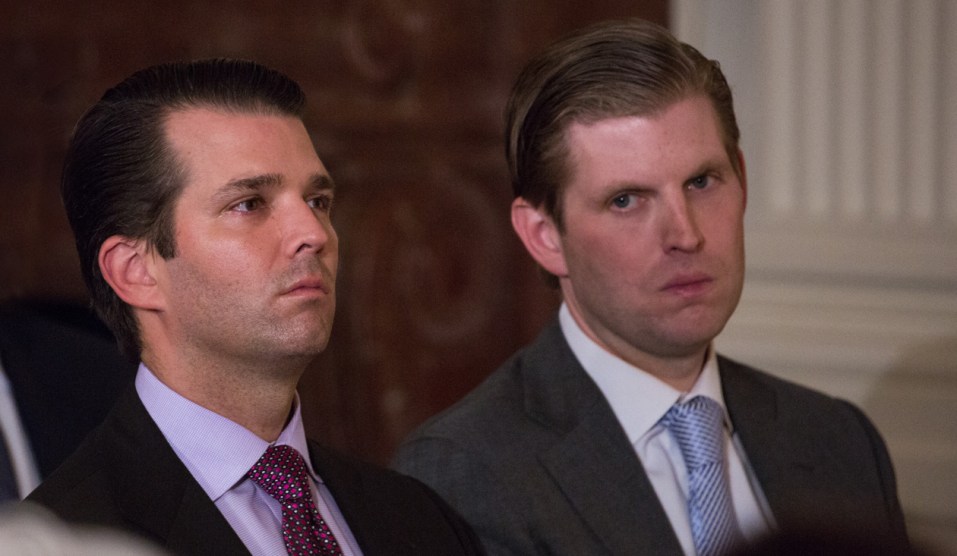
Lawyer Natalya Veselnitskaya Evgeny Biyatov/Sputnik via AP
The Russian lawyer at the center of a controversial June 2016 meeting at Trump Tower says there was in fact no controversy. Natalia Veselnitskaya attended the meeting where Donald Trump Jr. and other Trump campaign officials hoped to receive Russian dirt on Hillary Clinton. Now a memo she brought to that meeting has been disclosed, and she says it shows that she did not discuss politics with the Trump team and was acting independently, not as a Kremlin emissary. But she may want to read her own talking points a bit more carefully.
The attorney, Natalia Veselnitskaya, says the document, first disclosed by Foreign Policy, shows that she was focused on overturning the Magnitsky Act, which imposes sanctions on certain Russians for human rights violations, and discrediting the lead advocate of that law, an American-British investor named Bill Browder. Veselnitskaya contends that the talking points and recently released emails she exchanged ahead of the meeting indicate she was not operating as a Kremlin agent but as a private lawyer representing a family friend, Russian businessman Denis Katsyv, whom the Justice Department had accused of money-laundering.
Her talking points do concentrate on the Magnitsky Act and Browder. They state that Browder conned US lawmakers into passing the law by blaming Russians for embezzling funds that she alleges Browder stole from the Russian Treasury through a tax-evasion scheme involving shares in Gazprom, the Russian oil and gas company. But the memo also contradicts her basic claims.
Her meeting with Donald Trump Jr., she wrote in an email to Foreign Policy, had nothing to do with the 2016 election. But that’s not true. The four-page memo ties Browder’s alleged misdeeds to the Clinton campaign by highlighting Browder’s partnership with a hedge fund then headed by three brothers, Daniel, Dick, and Robert Ziff. “According to available information [the] Ziff Brothers financed the two Obama election campaigns, and the American media call them ‘the main sponsor of the Democrats,'” the memo says. “It cannot be ruled out that they also financed Hillary Clinton campaign.” The document clearly was suggesting that the Ziffs’ actions in Russia might be ammunition for the Trump campaign.
The Trump Tower meeting was arranged at the behest of Aras Agalarov, a Russian construction magnate, and his son Emin, an aspiring pop star. The Agalarovs partnered with Donald Trump on the 2013 Miss Universe contest in Moscow and maintained ties with the Trump family. Rob Goldstone, a publicist for Emin who brokered the Trump Tower meeting, wrote in a June 3 email to Trump Jr. that the “Crown prosecutor of Russia” in a meeting with Aras Agalarov “offered to provide the Trump campaign with some official documents and information that would incriminate Hillary and her dealings with Russia and would be very useful to your father.” Goldstone said the offer was “part of Russia and its government’s support for Mr. Trump.” Goldstone’s mention of the crown prosecutor was an apparently errant reference to Russian Prosecutor General Yuri Chaika, a close ally of Russian President Vladmir Putin who has worked to oppose the Magnitsky Act and is prosecuting Browder in absentia for fraud.
Veselnitskaya has denied ties to the Russian government. In a court appearance in Moscow last week in the case against Browder, she claimed her involvement in opposing the Magnitsky Act was personal. “I am not representing anyone’s interests here,” she said, according to a prominent Russian newspaper. “I am personally interested in this case. But if you’re interested—yes, I am a patriot! But that has nothing to do with my interest in this case.”
But the memo Veselnitskaya brought to the Trump Tower meeting undermines her claim of independence from the Kremlin. The document offers the same argument in similar wording to a memo that Rep. Dana Rohrabacher (R-Calif.) received from Chaika’s office during an April 2016 visit to Russia, first reported by the Daily Beast. Mother Jones obtained that memo. Veselnitskaya’s talking points are dated May 31, 2016. Both documents state that Browder “renounced US citizenship for tax reasons” in 1998 and describe the same alleged scheme involving Gazprom stock.
Here is a line from Veselnitskaya’s memo, which is embedded in full below: “As soon as Browder’s activity became the subject of attention of Russian law enforcement bodies and he was banned to enter the country on a tourist visa, in January 2006 all assets controlled by Ziff Brothers Investments were siphoned off from the jurisdiction of the Russian Federation.”
Here’s a line from the document Rohrabacher received, also embedded below: “Once Browder’s activities drew the attention of the Russian law enforcement authorities, and he was not allowed any more to visit Russia on a tourist visa, in January 2006 all the assets controlled by Ziff Brothers Investments were removed from the jurisdiction of the Russian Federation.”
Mother Jones could not independently verify the authenticity of either document.
Veselnitskaya has acknowledged that she met with Chaika prior to the Trump Tower meeting, but she has denied that his office gave her information to share with the Trump campaign. Instead, she says that starting in October 2015, she provided Chaika’s office with information from her own investigation into Browder.
But Browder says the similarity between Veselnitskaya’s memo and the Kremlin materials refutes her claim of independence. “It shows that she is an agent of the Russian government,” Browder says. “The Russian government was trying to influence the Trump campaign to repeal the Magnitsky law, which is pretty significant.”
Browder says the Russians would surely have offered something in return for their request that Trump help repeal a major piece of American human rights legislation. “The only thing we’re missing is what they were offering in return,” he says, “and whether their offer was accepted.”
Additional reporting by Hannah Levintova.

















